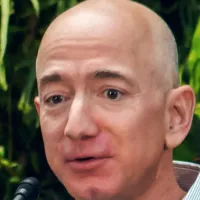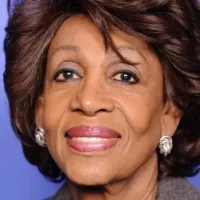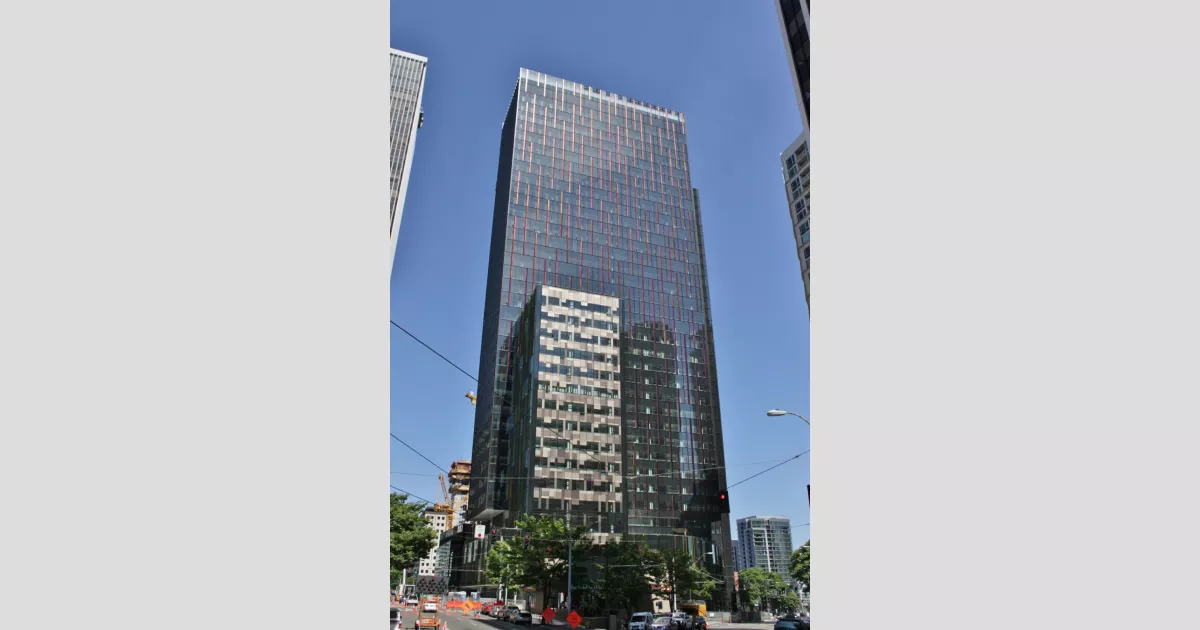Amazon.com, Inc. is a large American technology company known for its online retail operations. The company is also involved in cloud computing, online advertising, digital streaming, and artificial intelligence. Amazon is considered one of the "Big Five" American technology companies, alongside Alphabet, Apple, Meta, and Microsoft.
July 5, 1994: Amazon is Founded
On July 5, 1994, Jeff Bezos founded Amazon in Bellevue, Washington. Initially, the company was an online marketplace for books, but it quickly expanded its product offerings.
May 1997: Amazon Goes Public
In May 1997, Amazon went public, marking a significant milestone in its growth trajectory.
1998: Expansion into Music and Video Sales and International Markets
In 1998, Amazon expanded its product offerings to include music and videos. The company also began its international expansion by acquiring online booksellers in the UK and Germany.
2000: Partnership and Subsequent Lawsuit with Toys "R" Us
In 2000, Amazon and Toys "R" Us initiated a 10-year exclusive agreement, valued at US$50 million annually plus a percentage of sales, positioning Toys "R" Us as the sole provider of toys and baby products on Amazon's platform.
2001: Partnership with Borders Group
In 2001, Amazon entered a similar agreement with Borders Group, where they would co-manage Borders.com as a co-branded service.
2002: Launch of Amazon Web Services (AWS)
In 2002, Amazon launched Amazon Web Services (AWS), initially providing APIs for web developers to build applications using Amazon's e-commerce platform.
2004: Expansion of AWS Services
In 2004, AWS expanded its offerings to include website popularity statistics and web crawler data from Alexa Web Information Service.
2004: Toys "R" Us Sues Amazon
In 2004, Toys "R" Us filed a lawsuit against Amazon, alleging that Amazon had allowed third-party sellers to offer products in categories where Toys "R" Us held exclusive rights, due to a perceived lack of variety in Toys "R" Us inventory.
2006: Launch of Fulfillment by Amazon and S3
In 2006, Amazon introduced the Fulfillment by Amazon program, enabling individuals and small businesses to sell through Amazon's infrastructure. The company also launched Simple Storage Service (S3) as part of AWS.
2006: Court Rules in Favor of Toys "R" Us
In 2006, a court ruled in favor of Toys "R" Us, permitting them to terminate their agreement with Amazon and establish their own independent e-commerce website. Subsequently, Toys "R" Us received US$51 million in damages.
2007: Borders Ends Partnership with Amazon
In 2007, Borders Group opted out of the agreement with Amazon, planning to establish its own online store.
2008: Launch of Elastic Compute Cloud (EC2)
In 2008, AWS further expanded with the launch of Elastic Compute Cloud (EC2), enabling companies to rent computing power from Amazon.
2008: Growth in Website Traffic
In 2008, Amazon.com recorded 615 million annual visitors.
October 18, 2011: Partnership with DC Comics and Exclusive Digital Rights
On October 18, 2011, Amazon.com secured an exclusive digital rights partnership with DC Comics, covering popular titles like Superman, Batman, and others. This partnership led prominent bookstores, including Barnes & Noble, to remove these titles from their physical shelves.
December 2011: Backlash Against Amazon's Price Check App Promotion
In December 2011, Amazon faced criticism from small businesses for a one-day promotion of its new Price Check app, which offered a 5% discount to shoppers who used the app to compare prices in physical stores and then purchased the same item from Amazon.
May 24, 2012: Amazon Ends ALEC Membership
On May 24, 2012, Amazon discontinued its corporate membership with the American Legislative Exchange Council (ALEC) in response to protests at its shareholders' meeting.
2013: Amazon's Lobbying Expenditures
In 2013, Amazon spent approximately $3.5 million on lobbying the United States federal government.
July 2014: FTC Lawsuit Regarding In-App Purchases
In July 2014, the Federal Trade Commission (FTC) filed a lawsuit against Amazon, alleging that the company was promoting in-app purchases to children without obtaining parental consent.
2014: Amazon's Lobbying Expenditures
Amazon's lobbying expenditures increased to about $5 million in 2014.
2014: Amazon Expands Lobbying for Drone Delivery Program
In 2014, Amazon expanded its lobbying activities, specifically to seek approval from the Federal Aviation Administration (FAA) for its drone delivery program.
2015: Amazon's Lobbying Expenditures
In 2015, Amazon's lobbying expenditures rose again, reaching around $9.5 million.
August 2017: Acquisition of Whole Foods Market
In August 2017, Amazon acquired Whole Foods Market for US$13.4 billion, significantly expanding its physical retail presence.
2017: Dominance in U.S. E-Retail and Global Customer Base
In 2017, Amazon established itself as the leading e-retailer in the U.S. with approximately US$178 billion in net sales. Globally, the company had over 300 million active customer accounts.
2019: Amazon Bans Skin-Lightening Products
Amazon prohibited the sale of skin-lightening products in 2019 following pressure from health and environmental activists in Minnesota.
2019: Significant Increase in Amazon's Lobbying Efforts
Amazon significantly increased its lobbying efforts in 2019, spending $16.8 million and employing a team of 104 lobbyists.
2019: Amazon Announces Fourth Quarter 2019 Results
In 2019, Amazon announced its fourth-quarter results, which subsequently led to its market capitalization exceeding US$1 trillion in early February 2020.
February 2020: Amazon's Market Capitalization Exceeds $1 Trillion Again
In February 2020, Amazon's market capitalization surpassed US$1 trillion once more, following the release of its fourth-quarter 2019 earnings report.
September 2020: Amazon Receives FAA Certification for Drone Delivery
In September 2020, Amazon moved a step closer to implementing its drone delivery program after receiving a crucial certificate from the Federal Aviation Administration (FAA).
February 2, 2021: Jeff Bezos Announces CEO Transition
On February 2, 2021, Jeff Bezos announced he would step down as CEO to assume the role of executive chair of Amazon's board.
July 5, 2021: Andy Jassy Becomes CEO
On July 5, 2021, Andy Jassy, the former CEO of AWS, replaced Jeff Bezos as Amazon's CEO.
March 2022: Acquisition of Metro-Goldwyn-Mayer
In March 2022, Amazon acquired the Metro-Goldwyn-Mayer (MGM) studio, further expanding its content production capabilities.
2022: Significant Increase in Website Traffic
By 2022, visits to amazon.com had significantly increased, surpassing 2 billion visits per month, making it the 14th most visited website globally.
2022: Dismissal of Lawsuit by New York State Court
In 2022, the New York state court of appeals dismissed a lawsuit filed by state attorney-general Letitia James against Amazon.
January 2023: Job Cuts at Amazon
In January 2023, Amazon cut over 18,000 jobs, mostly in consumer retail and human resources, as part of a cost-cutting initiative.
October 2023: Amazon's Website Ranking
As of October 2023, Amazon's website ranked as the 12th most visited globally, with 82% of its traffic originating from the United States.
November 8, 2023: Jeff Bezos's Stock Sale Plan
On November 8, 2023, a plan was adopted for Jeff Bezos to sell about 50 million shares of Amazon over the following year, concluding by January 31, 2025. The initial phase involved the sale of 12 million shares for roughly $2 billion.
2023: Amazon Achieves Dominant Market Position
By 2023, Amazon had become the world's leading online retailer, marketplace, and provider of various services like cloud computing and live streaming, based on revenue and market share.
2024: Ring Halts Sharing Footage Without Warrant
In 2024, after years of criticism for providing law enforcement with footage from its Ring home security cameras without a warrant, Ring discontinued this practice.
January 31, 2025: Deadline for Jeff Bezos's Stock Sale Plan
January 31, 2025, marked the deadline for Jeff Bezos's plan to sell approximately 50 million shares of Amazon.
Mentioned in this timeline

Jeff Bezos is an American businessman renowned as the founder...

Walmart Inc is a multinational retail corporation operating hypermarkets discount...
Germany officially the Federal Republic of Germany is a Western...
China officially the People's Republic of China PRC is an...

Music is a cultural universal involving the arrangement of sound...

Letitia Ann Tish James is an American lawyer and politician...
Trending

2 months ago Scott Bessent Predicts Oil Price Drop Contingent on Venezuelan Events; Gas Prices Impacted.

Maxine Waters is an American politician who has served as the U S representative for California's rd congressional district since...
2 months ago Breeze Airways Cancels Redmond, Burbank Flights & Eugene Expansion Before Launch

10 months ago Hurricanes defeat Devils 4-1; Mini Seth Jarvis steals the show.

4 months ago Jim Carrey's 'Grinch' gets 4K Steelbook release, plus outrageous performance streams on Tubi.

Brittany Lynne Mahomes is an American entrepreneur athlete and former soccer player She is a co-owner of the Kansas City...
Popular

Melania Trump a Slovenian-American former model has served as First...

Thomas Douglas Homan is an American law enforcement officer who...

Kid Rock born Robert James Ritchie is an American musician...

XXXTentacion born Jahseh Dwayne Ricardo Onfroy was a controversial yet...

Jupiter is the fifth and largest planet from the Sun...

Instagram is a photo and video-sharing social networking service owned...
